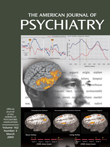Aripiprazole in a Patient Vulnerable to Side Effects
Ms. A, a 19-year-old patient, had suffered from motor and vocal tics since the age of 6. Her vocal tics included grunting, snorting, neighing, palilalia, and motor tics, such as beating and strangling herself. Additionally, she developed compulsions of washing and controlling. The course of her illness was chronic, not waxing and waning. She had experienced no tic-free interval during the last 13 years. Pharmacotherapy over the last years included 300 mg/day of tiapride, leading to an improvement of her motor tics only. Additional therapy with 300 mg/day of sulpiride first and 400 mg/day of amisulpride later each caused galactorrhea, without substantial therapeutic effect. Ms. A stopped taking both substances. Ms. A also stopped taking 4 mg/day of pimozide and later 80 mg/day of ziprasidone, each taken over several weeks; both caused amenorrhea and had only marginal effects on the tics.Afterward, we started treatment with 10 mg/day of aripiprazole because of the side effect profile. In the first week, Ms. A’s motor and vocal tics showed a marked improvement; after 2 weeks, Ms. A was nearly tic free for the first time in 13 years. Amenorrhea or galactorrhea was not present during the next months; other side effects, such as sedation or weight gain, did not occur. Ms. A started working as a waiter for the first time. The compulsions were much improved. Only a blinking tic, which exacerbated during stress, persisted.
References
Information & Authors
Information
Published In
History
Authors
Metrics & Citations
Metrics
Citations
Export Citations
If you have the appropriate software installed, you can download article citation data to the citation manager of your choice. Simply select your manager software from the list below and click Download.
For more information or tips please see 'Downloading to a citation manager' in the Help menu.
There are no citations for this item
View Options
View options
PDF/ePub
View PDF/ePubGet Access
Login options
Already a subscriber? Access your subscription through your login credentials or your institution for full access to this article.
Personal login Institutional Login Open Athens loginNot a subscriber?
PsychiatryOnline subscription options offer access to the DSM-5-TR® library, books, journals, CME, and patient resources. This all-in-one virtual library provides psychiatrists and mental health professionals with key resources for diagnosis, treatment, research, and professional development.
Need more help? PsychiatryOnline Customer Service may be reached by emailing [email protected] or by calling 800-368-5777 (in the U.S.) or 703-907-7322 (outside the U.S.).

